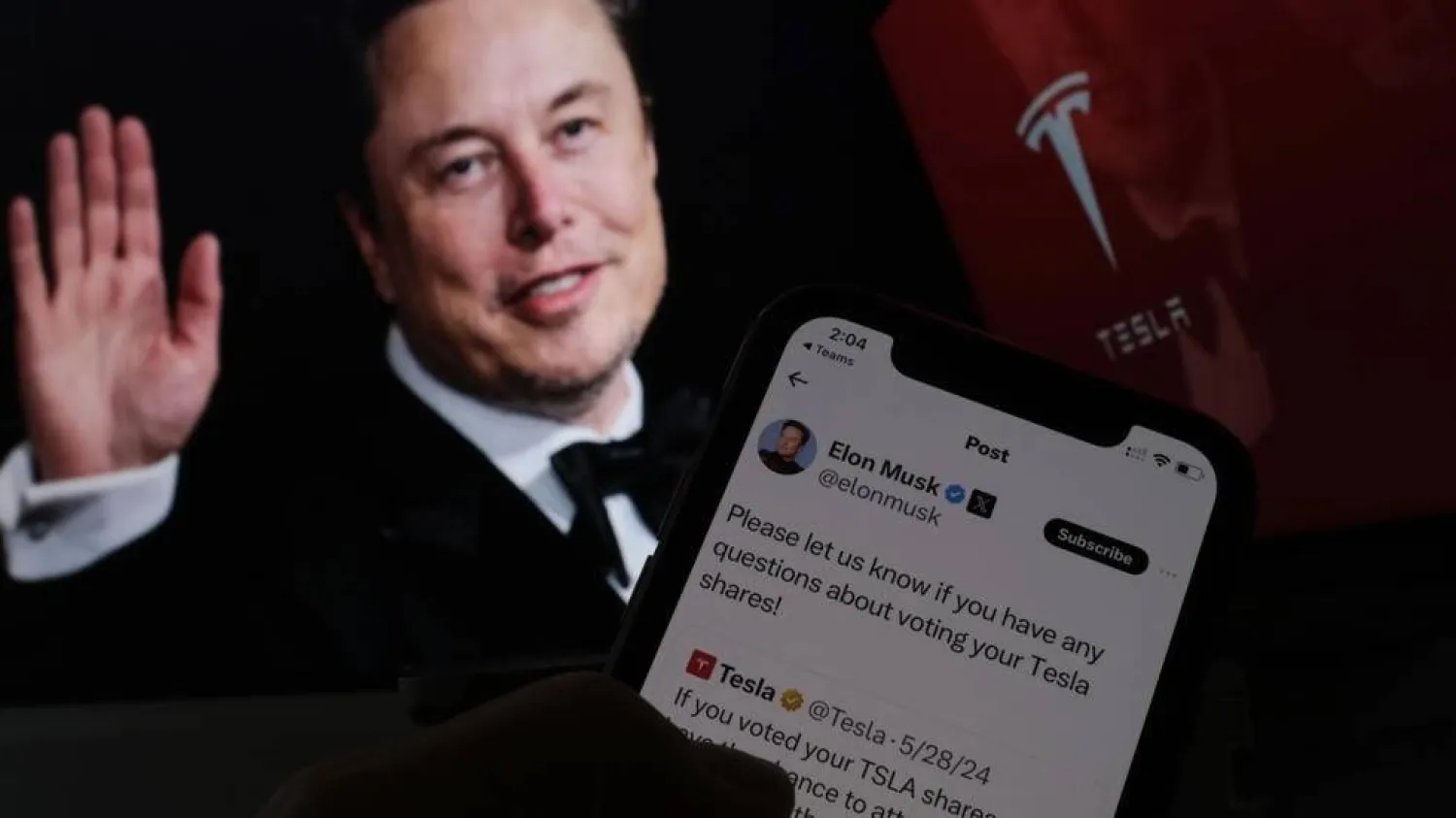Tesla CEO Elon Musk said late Wednesday that the electric vehicle company's shareholders were voting to approve his multibillion-dollar pay package by "wide margins" before the ballot had been concluded.
The firm has campaigned to convince shareholders to approve Musk's giant compensation package -- worth as much as $56 billion -- ahead of Tesla's annual shareholder meeting, which is slated for Thursday afternoon, AFP said.
"Both Tesla shareholder resolutions are currently passing by wide margins!" Musk wrote on his social media platform X, referring to the resolutions to approve his pay package as well as a plan to shift Tesla's place of incorporation from Delaware to Texas.
"Thanks for your support!!" the billionaire businessman added.
Official shareholder vote results have not yet been released.
Before the end of voting on Wednesday, Tesla said on a website for its annual meeting that the "future value we are poised to deliver for you is at risk," adding: "We need your vote NOW to protect Tesla and your investment."
In an effort to coax more shareholder participation, Tesla launched a sweepstakes of sorts where 15 investors who voted would be randomly picked for a tour of Tesla's plant in Austin, Texas personally led by Musk and vehicle designer Franz von Holzhausen.
Winners would also get choice seats for Tesla's annual meeting, to be held Thursday afternoon in Austin.
The company has employed the Musk-owned X platform, formerly Twitter, to publicize the effort.
The 'Musk premium'
Shareholders overwhelmingly backed the Musk compensation plan in March 2018, but it was struck down by a Delaware judge in January.
This year's vote was expected to be closer than the 2018 referendum after influential advisory firms Investor Shareholder Services and Glass Lewis came out against the windfall, with ISS dismissing the proposal as "excessive."
In April, Tesla revived the package, with chair Robyn Denholm imploring investors to "fix this issue" after the Delaware ruling.
"Tesla has been one of the most successful enterprises of our time. In just the past six years, we created more than $735 billion in value," Denholm said in a letter to shareholders.
"Our next growth vector is equally as ambitious."
Before the end of shareholder voting, CFRA Research's Garrett Nelson declined to speculate about the outcome, but predicted that sufficient support from institutional investors would be crucial.
Individual investors, who comprise about 40 percent of Tesla's investor base, were expected to back Musk, he said.
A defeat for the plan could "increase uncertainty regarding the future leadership of the company and jeopardize the 'Musk premium'" should the unpredictable chief executive exit, according to Nelson.
Musk backers, like billionaire investor Ron Baron, have offered unflinching support.
"Shareholders should ask themselves this question: is Tesla better off with or without Elon," Baron said in a public letter.
"At Baron Capital, our answer is clear, loud and unequivocal: Tesla is better with Elon. Tesla is Elon."
Among other large shareholders, Vanguard, which holds more than seven percent of shares, declined to comment, while BlackRock, which holds around six percent, did not respond to a request for comment.
But other investors including Norges Bank Investment Management, Norway's sovereign wealth fund, have said they will vote no.
So has California State Teachers' Retirement System.
CalSTRS chief investment officer Chris Ailman dismissed the package as "absurd."Ailman told CNBC that he considers Musk "brilliant," but that the current package is "ridiculous."
"We need to have a serious salary. We'll pay him 140 times the average worker pay," Ailman said. "I think that's more than fair.
Musk Says Tesla Shareholders Voting for His Pay Package by 'Wide Margins'

Tech billionaire Elon Musk is encouraging shareholders in electric automaker Tesla to vote in favor of a plan that includes a massive pay package for the company's founder and chief executive. Chris DELMAS / AFP

Musk Says Tesla Shareholders Voting for His Pay Package by 'Wide Margins'

Tech billionaire Elon Musk is encouraging shareholders in electric automaker Tesla to vote in favor of a plan that includes a massive pay package for the company's founder and chief executive. Chris DELMAS / AFP
لم تشترك بعد
انشئ حساباً خاصاً بك لتحصل على أخبار مخصصة لك ولتتمتع بخاصية حفظ المقالات وتتلقى نشراتنا البريدية المتنوعة







